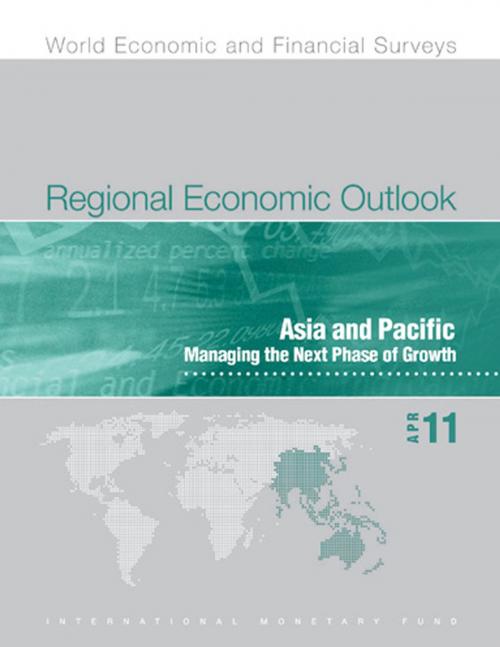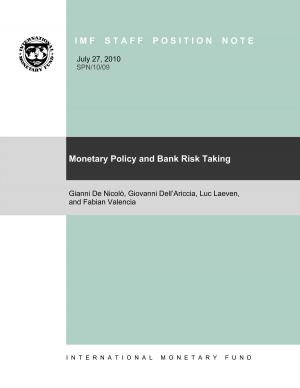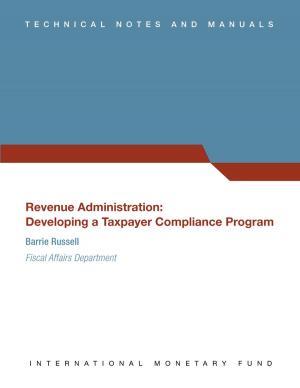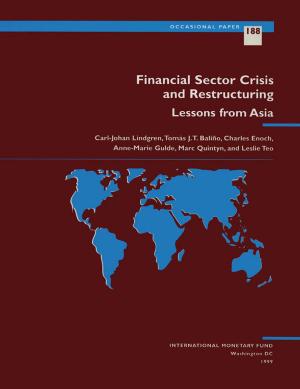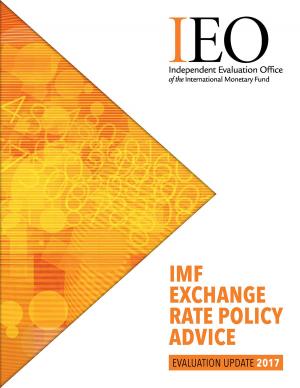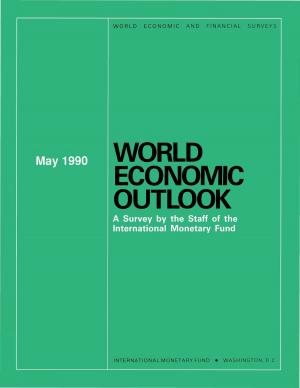Regional Economic Outlook April 2011: Asia and Pacific - Managing the Next Phase of Growth
Business & Finance, Economics, International Economics, Macroeconomics, Nonfiction, Social & Cultural Studies, Political Science, Politics, Economic Policy| Author: | International Monetary Fund. Asia and Pacific Dept | ISBN: | 9781455252251 |
| Publisher: | INTERNATIONAL MONETARY FUND | Publication: | April 28, 2011 |
| Imprint: | INTERNATIONAL MONETARY FUND | Language: | English |
| Author: | International Monetary Fund. Asia and Pacific Dept |
| ISBN: | 9781455252251 |
| Publisher: | INTERNATIONAL MONETARY FUND |
| Publication: | April 28, 2011 |
| Imprint: | INTERNATIONAL MONETARY FUND |
| Language: | English |
The April 2011 issue of the Regional Economic Outlook: Asia and Pacific focuses on the policy challenges of managing the next phase of growth after Asia's recovery from the global crisis. The analytical chapters discuss how capital flows to the region may affect the monetary policy transmission mechanism and the role of macroprudential measures in this context, the implications of the Asian supply chain for rebalancing growth across the region, and the policy challenges for Asian low-income and Pacific Island countries. Economic recovery in Asia as a whole has been rapid (8.3 percent in 2010) and fueled by both exports and domestic demand. Looking ahead, growth is expected to continue at a more moderate but also more sustainable pace in 2011 and 2012, led by China and India. Meanwhile, new risks to the outlook have emerged. The full human cost and impact on infrastructure of the mid-March earthquake and tsunami in Japan remain to be determined. The steady response of the Japanese government and people has helped to contain the effects of the disaster on production, but a risk remains of prolonged disruptions in production that could spill over to other Asian economies in the regional supply chain. Moreover, tensions in the Middle East and North Africa and related risk of further oil price spikes could disrupt global growth and affect Asian exports. Finally, pockets of overheating have emerged in Asia, as core inflation and credit growth have accelerated in several Asian economies. The need to tighten macroeconomic policy stances has become more pressing than it was six months ago.
The April 2011 issue of the Regional Economic Outlook: Asia and Pacific focuses on the policy challenges of managing the next phase of growth after Asia's recovery from the global crisis. The analytical chapters discuss how capital flows to the region may affect the monetary policy transmission mechanism and the role of macroprudential measures in this context, the implications of the Asian supply chain for rebalancing growth across the region, and the policy challenges for Asian low-income and Pacific Island countries. Economic recovery in Asia as a whole has been rapid (8.3 percent in 2010) and fueled by both exports and domestic demand. Looking ahead, growth is expected to continue at a more moderate but also more sustainable pace in 2011 and 2012, led by China and India. Meanwhile, new risks to the outlook have emerged. The full human cost and impact on infrastructure of the mid-March earthquake and tsunami in Japan remain to be determined. The steady response of the Japanese government and people has helped to contain the effects of the disaster on production, but a risk remains of prolonged disruptions in production that could spill over to other Asian economies in the regional supply chain. Moreover, tensions in the Middle East and North Africa and related risk of further oil price spikes could disrupt global growth and affect Asian exports. Finally, pockets of overheating have emerged in Asia, as core inflation and credit growth have accelerated in several Asian economies. The need to tighten macroeconomic policy stances has become more pressing than it was six months ago.
